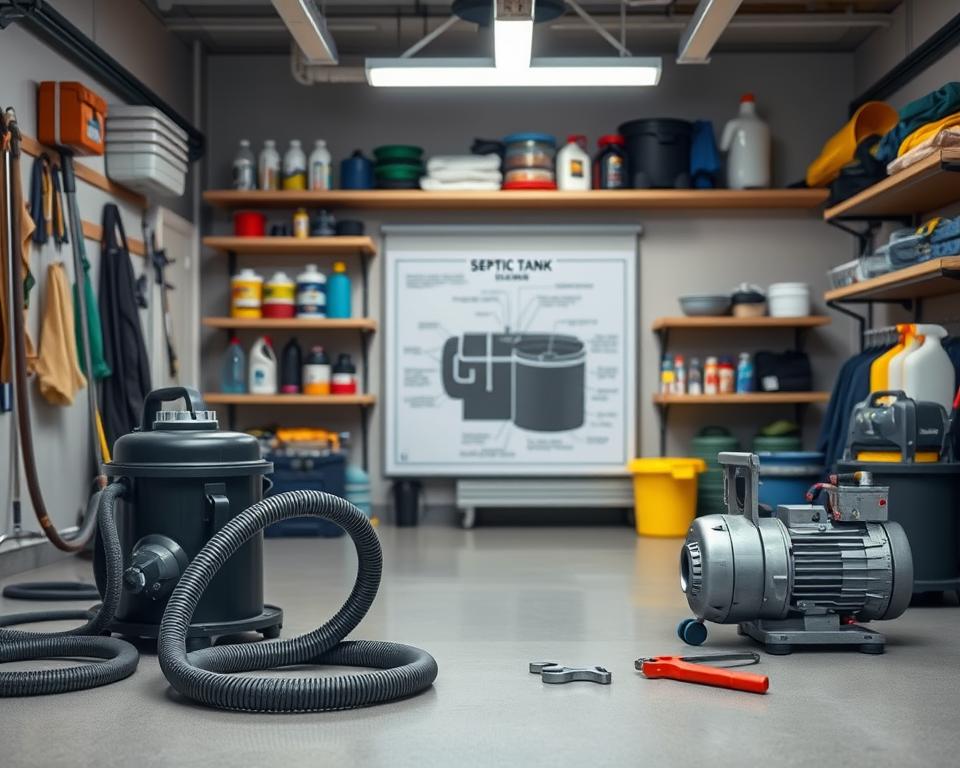Septic System Servicing
Do you ever wondered about the effects of overlooking septic system upkeep? For those who use these systems for waste management, missing regular care can lead to hefty costs. It also poses dangers to both public safety and the environment. Cleaning your septic system is far from a simple task; it’s essential for making sure your household runs smoothly. By consistently pumping your septic tank, you prevent solid waste build‑up and prolong the lifespan of your unit. This preventive approach lets you avoid any unwanted situations. Find out the importance of septic tank maintenance and the steps involved with septic tank inspection cost.
Noteworthy Points
- Scheduled septic system pumping is vital for avoiding hefty restorations.
- Neglecting maintenance can cause health risks for your family.
- Knowing your septic system assists in efficient maintenance.
- Indicators of a troubled septic system should be noticed promptly.
- Expert technicians can support in preserving excellent tank health.
Grasping Your Septic System
A septic system is an efficient on‑property approach for processing wastewater. It mainly comprises two components: the septic tank and the absorption field. Both are integral for ensuring adequate purification and safeguarding the environment.
The septic tank gathers wastewater from your home. There, waste solids sink to the bottom, and effluent rise to the surface. Bacteria within the tank break down the biomatter, making the outflow simpler to process. This pre‑treated wastewater then moves to the drainfield for additional filtering by the ground, finishing the cycle.
It’s vital for homeowners to understand the workings of their septic system. Learning how the septic tank and field function together can result in improved system care. This insight supports proper maintenance strategies, supporting the system’s durability.

Significance of Routine Septic System Cleaning
Consistent maintenance of the septic system is crucial for household and environmental health. If overlooked, raw wastewater can leak into your yard. This escape may result in well water contamination, posing health risks. By maintaining the septic system clean, you safeguard your family and the environment.
It’s suggested to clean the septic system every three‑to‑five years, according to how much you use it. Such upkeep is not just good for the planet; it prevents expensive repairs. A septic system that’s regularly serviced operates better, delivering a healthier home environment and a safer natural world.
Indicators Your Septic Tank Needs Attention
Homeowners need to recognize clues that their septic tank may need cleaning. Primary indicators to look out for include:
- Slow water flow in basins, showers, and loos
- Foul smells near the leachfield
- Effluent backups in interior drains
- Persistent soggy spots or extra‑green sections of grass above the septic system
It’s important to spot these signs promptly to avoid significant septic tank failures. Scheduled inspections are key. They find issues before they become costly fixes. Checking your system consistently guarantees it works well and lasts longer.
Keeping watch and moving promptly are essential for septic system upkeep. By observing these alerts, you can preserve your septic system in optimal health.
Septic System Pumping Schedule
Cleaning your septic system consistently is fundamental to maintaining your home’s plumbing in good order. Experts generally suggest cleaning the septic tank every three‑to‑five years. However, this can change according to the size of your family, how much water you use, and the volume of your tank.
If you have a larger household that uses more water, you could need to service the system more often. Tracking your water use can help you figure out if you need to modify your service schedule.
All in Sanitation encourages setting up a consistent pumping schedule that suits your household’s specific needs. Sticking to a regular maintenance program keeps your septic system running efficiently and sidesteps hefty fixes.
Septic System Cleaning: Best Practices
For a septic system to remain healthy, homeowners must practice important practices. It’s critical not to flush non‑biodegradable items; doing so avoids obstructions and maintains the system functioning properly. Similarly, limiting harsh chemicals keeps the required bacterial population. These actions are critical for the system’s life span and performance.
Proactivity with routine inspections is essential. Setting up routine inspections can catch issues promptly, allowing for swift repairs. Additionally, conserving water through fixing leaks and conscious usage supports septic tank health. These practices guarantee the system functions smoothly for a long time.
It’s also essential not to park on the absorption area. Leaving this area clear ensures it effectively process waste water, protecting your system from issues. Heeding advice from specialists like All in Sanitation also improves septic system care.
The Process of Septic Tank Pumping
For homeowners, grasping the septic system service process is crucial. A licensed septic pumper should perform scheduled septic tank pumping to maintain your system functioning efficiently. The first step is checking the tank’s condition to decide when it requires pumping.
A septic tank needs pumping once the solid layer take up about one‑third to half of its space. The licensed septic pumper will then extract these solids. This procedure preserves the system’s efficiency. Furthermore, the service may entail checking the tank for incipient issues, enabling prompt fixes.
Maintaining a log of each pumping visit is wise. This log lets owners monitor their septic system’s maintenance, and is helpful if listing the property. Adequate septic system maintenance extends its longevity and functionality, heading off costly fixes down the line.
Septic Tank Check‑Up: What to Examine
Regular inspections are essential for your septic system’s health. Using a thorough septic tank inspection checklist can detect potential issues promptly. Inspections should be carried out by a certified professional every one to two years. They will measure sludge levels and the floating layer during this check.
Checking the inlet and outlet baffles and filters is also vital. These elements are critical for your septic system’s smooth operation. Spotting drips or failures promptly can sidestep high repair costs. Proactive steps, like using an inspection checklist, extend your system’s durability and efficiency.
Expert Septic System Services
Utilizing professional septic system services is crucial for your septic system’s integrity. By selecting a company like All in Sanitation, you ensure that experts handle the pumping, check‑ups, and repairs carefully. Accredited technicians have specialized knowledge, enabling homeowners to maintain the system’s peak functionality long‑term.
Maintenance by licensed experts lowers the risk of surprise breakdowns and expensive fixes. These services feature comprehensive inspections that check the system’s status, locating incipient problems promptly. Adopting this proactive stance substantially extends your septic system’s service years.
In the end, handing over your septic system to qualified experts offers peace of mind. Working alongside companies such as All in Sanitation utilizes their expertise. It ensures the wellbeing of your tank, building assurance in its maintenance.
Septic System Maintenance Hints for Homeowners
Homeowners have the power to keep their septic systems operating efficiently. Using efficient care tips markedly boosts their function. Introducing easy adjustments to water habits, like reducing extra use and spreading the use of appliances, lessens load on the system.
Fitting water‑saving faucets in your bathrooms and kitchens greatly bolsters septic longevity. These fixtures cut down water use without hurting performance. Not using garbage disposals is wise too, as they produce more waste in the system, requiring extra upkeep.
Routine inspections and following a proper maintenance routine will lengthen your septic system’s life. Staying aware of everything that flows into your drains is essential for preserving a balanced septic environment. By practicing these habits, you’ll significantly support your septic system’s operation and longevity.
Common Septic System Issues
Septic systems may encounter various problems over time, calling for repairs. Typical problems include seepage, broken baffles, and percolation troubles in the leachfield. By recognizing the signs promptly, homeowners can tackle them swiftly, keeping their system stays in good condition.
Typical repairs involve:
- Changing out faulty components to bring back system integrity
- Repairing or changing damaged pipes to stop leaks
- Clearing clogged lines to guarantee proper drainage
Fixing septic issues quickly not only cuts costs over time but also extends the system’s service years. Regular check‑ups and maintenance can ward off these issues, aiding in the upkeep of a sound septic system.
To Conclude
Maintaining your septic system sound is central to planetary and personal well‑being. Consistent services and examinations avoid expensive repairs and dangers. Taking initiative with septic care conserves resources and reduces worry.
Engaging experts like All in Sanitation ensures top‑notch upkeep suited to your needs. Their experience aids spot issues quickly, avoiding serious troubles and emphasizing the need for scheduled inspections.
Adopting sound methods for septic maintenance ensures long‑term system effectiveness. A little maintenance today ensures a more reliable septic system in the long run.

